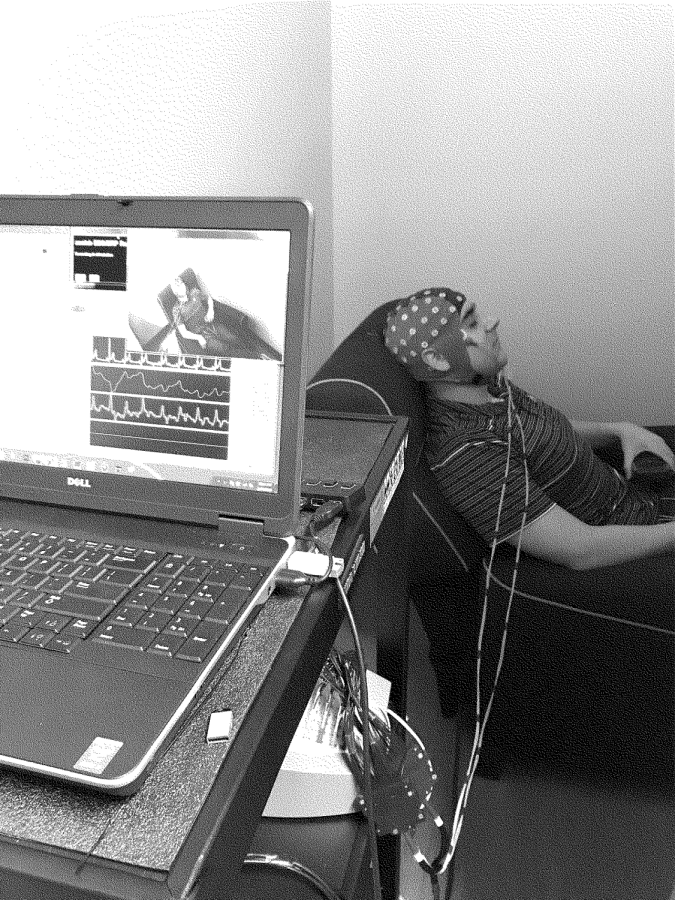Guest Opinion: A Healthy Sleep Schedule is Essential During College and Beyond
October 3, 2021
What if you learned that there was something you could do that would improve your memory, decrease stress, help you regulate emotions and lower your risk of getting sick?
What is this magical thing that can improve so many aspects of your life? The answer is sleep.
In fact, there has been so much research linking sleep to positive outcomes that the Sleep Research Society and the American Academy of Sleep Medicine issued a joint consensus statement recommending that adults sleep 7-9 hours a night for optimal health.
Yet, research also shows that more than 30% of U.S. adults routinely sleep less than the recommended amount. Findings from our lab indicate that the percentage is even higher among University of Utah students. Indeed, insufficient sleep
is now considered a public health epidemic, so striving to get sufficient sleep should be a high priority during college and beyond.
Insufficient sleep is associated with increased risk for a long list of chronic health conditions, including obesity, diabetes, hypertension, heart disease and Alzheimer’s disease. Short sleep is also associated with higher mortality risk. People with habitual short sleep who say “I’ll sleep when I’m dead” will likely be dead sooner than they’d wish.
We now know that sleep is essential for the brain to clear accumulated toxins — a nightly “deep cleanse.” Less sleep has adverse effects on the immune system — just 6 hours in one night is associated with a significant increase in systemic inflammation.
Research has also shown that insufficient sleep is associated with higher susceptibility to upper respiratory illness and weight gain. Critically, weekend “catch up” sleep does not completely undo these changes.
Poor sleep increases mental health illness susceptibility. Critical to these associations is research demonstrating the key role sleep plays in emotion regulation. Inadequate sleep is associated with greater next-day emotional reactivity to stress and increased interpersonal difficulties. Just one night of sleep deprivation leads to disruption of brain circuitry central to emotion regulation.
Relevant to success in college, adequate sleep is critical for memory and learning. Sleep facilitates the transfer of information from short-term to long-term memory storage in the brain. Rapid eye movement (REM) sleep, the stage of sleep that occurs while we are dreaming, is critical for integration of information.
Importantly, we have a higher percentage of REM sleep in the final hours of a normal night of sleep. Cutting sleep short by getting up after less than 7 hours means that you are depriving yourself of a stage of sleep essential for brain health. Hopefully, it goes without saying that pulling “all-nighters” is not a good study strategy.
Perhaps you’re a person who routinely sleeps less than 7 hours a night, but does not feel impaired. Can some people “get away” with habitual short sleep? We have been studying this question in the Restoration and Stress lab (RESTlab) in the Psychology Department. Our studies suggest that lower subjective need for sleep and a lack of perceived daytime dysfunction still allow for negative health consequences of short sleep.
We find that chronically sleep-deprived individuals may have an inaccurate sense of their own cognitive impairment — like an intoxicated person who feels OK to drive. In examining brain wave patterns of habitual short sleepers with no reported dysfunction, we find that they show drowsiness and sleep onset even when asked to stay awake. So far, we have not found evidence that people can adapt to chronic short sleep without facing negative consequences.
So, what can you do to improve your sleep? We can’t always control the quality of our sleep, but we can control aspects of our environment and behavior. Perhaps the most important thing is to keep a schedule that allows the opportunity for sufficient sleep. Set a bedtime that allows for 7-9 hours of sleep. Develop a relaxing nighttime routine leading up to the planned bedtime. Turn off electronics, lower lights and wind down at least 30 minutes before bedtime. Your bedroom should be cool (not too hot or cold), dark and quiet. Getting regular exercise also leads to better sleep, in addition to many other health benefits.
Finally, for individuals who suffer from sleep disorders (e.g., insomnia) there are effective treatments, such as Cognitive Behavioral Therapy for Insomnia (CBT-I).
With so much to gain, why not make getting enough sleep a priority?
— Paula G. Williams, Ph.D. & the Restoration and Stress lab (RESTlab), Dept. of Psychology
The Daily Utah Chronicle publishes guest op-eds written by faculty, elected officials, and other members of the public on topics relevant to students at the University of Utah. The Chronicle welcomes guest op-ed pitches here.







